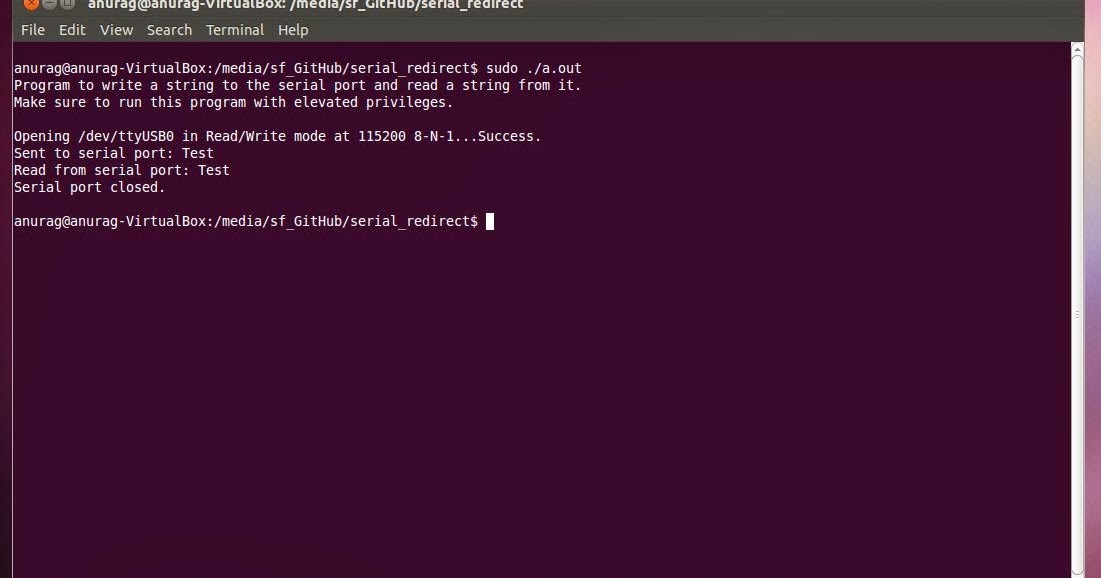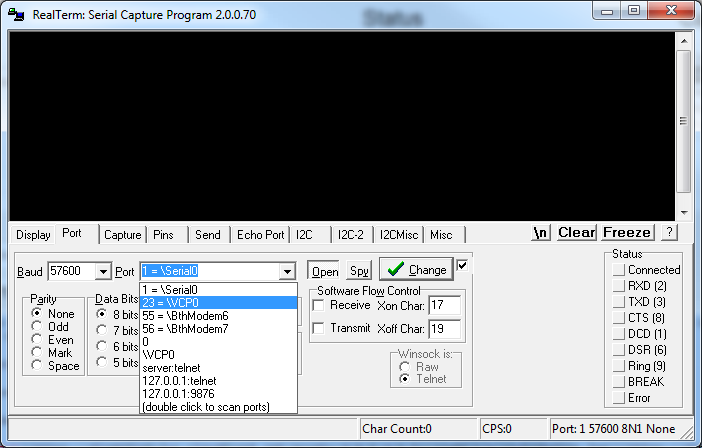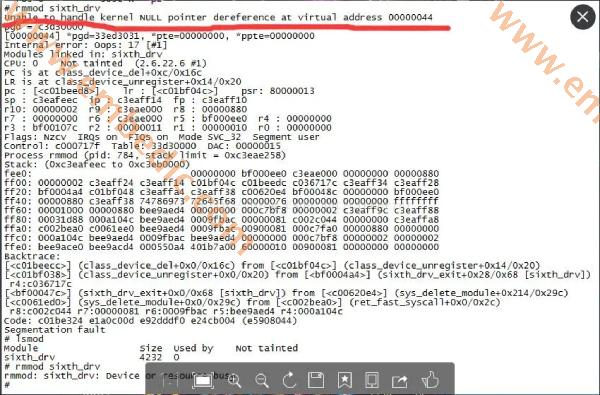

- #Linux send binary data to serial port how to
- #Linux send binary data to serial port full
- #Linux send binary data to serial port code
- #Linux send binary data to serial port series
- #Linux send binary data to serial port windows
Why cant I read in data from the serial port using a bash script. Linux Send Binary Data To Serial Port Serial Port Using. It would sometimes drop data or stop halfway for no apparent reason.īecause of this I wrote a simple little program ‘writetoserial’ that reads the contents of file and writes it to a serial port as binary data. They hope these examples will help you to get a better understanding of the Linux system and that you feel encouraged to try out things on your own.
#Linux send binary data to serial port how to
you how to connect to a serial port using the Linux or Unix command line tools. From there, there is a serialwrite.py file to write data to serial0 and putty outputs the signals. In the serialposix.py file the data is being written to the serial port - Im guessing that the win32 file is used when running on.
#Linux send binary data to serial port windows
It was possible to do this to some extent by using simple tools like ‘cat’ to write data to the serial port’s device file, but I could not get it to work reliably for binary data or files over a few kilobytes in size. In this lab, youll send data from multiple sensors from Arduino to your. When I send the data on windows everything is ok - on Linux I get the. Unfortunately, sending and receiving files and binary data over a serial port proved to be a little harder to do than I had anticipated.
#Linux send binary data to serial port code
Mostly to prepare the tools I will need to debug the system I’m planning on building, and in particular the code and algorithms I will use for file encryption. .While waiting for the hardware I need to get any further on my little programming project I have been experimenting with sending and receiving data from the FRDM-KL25Z through a serial port. Tcsetattr(portHandle, TCSANOW, &portSettings) PortSettings.c_lflag &= ~(ICANON | ECHO | ECHOE | ISIG) PortHandle = open( "/dev/ttyS0", O_RDWR | O_NOCTTY | O_NDELAY) įcntl(portHandle, F_SETFL, 0) //clear Ndelay now its open struct termios portSettings #include #include #include #include int portHandle Has anyone got any suggestions as to how to cure the problem? I have also tried opening the serial port using open, setting the properties, closing it and reopening it using an fstream object but the constructor hangs, presumably due to the fact that nonblock has been cleared by me closing the file. But depending on the opening mode I either get an error or end of file (r,w,a give errors r+,w+,a+ give EOF). I have played around using fdopen to create an stdio.h FILE object from the file descriptor returned by open(), and then tried using fread() to read the file. I know that the module is working correctly, as I have written a C# class to do the same job and it works perfectly. Clearing the Canonical flag didn't help either. The first program opens a file 'test.jpg', reads it in binary mode and stores the result in a buffer. However I can not find anything in the above libraries to allow me to set the file to binary over ASCII. This doesn't fully surprise me, as I think the port is being treaded as an ASCII file rather than a binary file. Leading me to the conclusion that the most significant bit is being set to 0 by the settings and functions that I'm using. They did reveal,at the correct byte spacing, a sequence of 0x7A 0x7F 0x32 0x30, and no values above 127 or below 0. However the cout statements showed no such input. The beginning of each message is a fixed sequence of 0xFA 0xFF 0x32 and 0x30, and I use this to make sure I am reading the correct part of the data sequence.
#Linux send binary data to serial port series
Upon running the code I didn't get any output, so I inserted a series of cout statements to let me know what data was being received, and it became evident that corruption was occurring. Finally it spawns a pthread to handle the data reception, which is done using read(). It then goes on to set the speed, data size, parity etc appropriately.

The configuration and initialization occur once at the start of the. The code uses the open() function to open /dev/ttyS0 for read and write, with ndelay and and noctty set. The Serial Send block configures and opens an interface to the specified serial port. I have run into a problem receiving data over the serial port.


At current I am developing and testing the application on my desktop using Debian, but it will eventually need to run on embedded Linux, so I am keen to stay away from non standard libraries if I can.
#Linux send binary data to serial port full
The information that the unit sends is full floating point, encoded not as ASCII text but split up into the constituent bytes and sent serially. I'm currently working on an application to get information from a commercial module that makes use of RS232 communications.


 0 kommentar(er)
0 kommentar(er)
